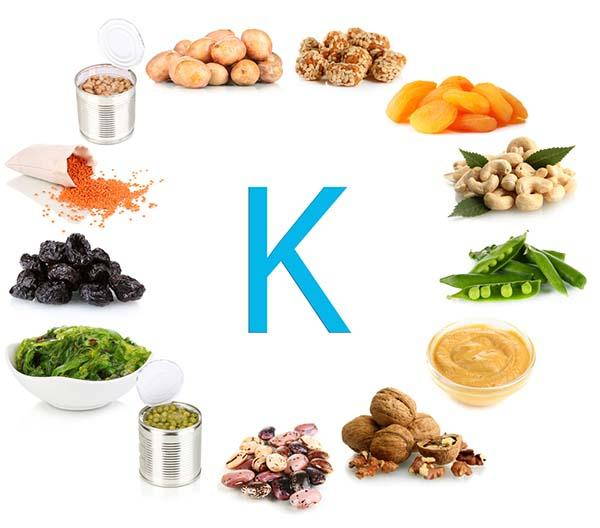Vitamin K is a fundamental substance for the well-being of our body in particular it deals with blood coagulation and bone health. Let's find out all its properties, the foods that contain it and the symptoms of a possible deficiency of this vitamin.
Don't store avocado like this: it's dangerousLa Vitamin K it is a fundamental substance for the well-being of our organism in particular it deals with blood clotting and bone health. Let's discover all its properties, foods that contain it and the symptoms of a possible deficiency of this vitamin.
Vitamin K is part of the fat-soluble vitamins (together with vitamin A, D and E), this means that it is soluble exclusively in fats and that the body is able to accumulate it, as opposed to what happens for water-soluble vitamins (i.e. those that dissolve in water ).
Read also: VITAMINS: ALL THE PROPERTIES AND FOODS THAT CONTAIN THE MOST
In reality it is a group of substances and it is no coincidence that at a medical level it is referred to vitamins K1, K2 and K3. The first is the one that is mainly found in plants and that we take with food, the second is that produced by our intestine and the last is the synthetic vitamin that is taken with the appropriate supplements.
In a healthy condition Vitamin K is naturally synthesized by our intestinal flora but not in a sufficient quantity and you may run into deficiencies especially in the case of taking antibiotics or if certain pathologies exist. This vitamin is then contained in some foods and therefore what our body can produce must be increased with proper nutrition.
Index
PROPERTIES OF VITAMIN K
The main property of vitamin K is its own anti-haemorrhagic function, this substance is in fact useful for blood coagulation as it helps to maintain the right viscosity of this liquid, which is so important for our body. This is why its deficiency can cause epistaxis (i.e. nosebleed) or other bleeding. This substance is always in the blood prevents the formation of calcium crystals in the arteries and therefore it is very useful for preserving cardiovascular health.
It is also fundamental for the good health of the bones which helps to keep them strong and mineralized avoiding fractures as it is essential for the activation of osteocalcin (protein present in the bone marrow that binds calcium ions). Also important is theaction on the nervous system and brain as well as the antioxidant potential (which are expressed above all on the nerves) and anti-inflammatory of this substance which benefits the whole body.
In summary, vitamin K is important because:
• Help the blood clotting
• Prevents calcification of the arteries
• Keeps bones mineralized and strong
• Helps the nervous system and brain
• It is antioxidant (especially towards the nerves)
• IS inflammatory
SYMPTOMS OF A DEFICIENCY
It is difficult to run into a lack of vitamin K since, as already mentioned, not only is it present in various foods but our body is also able to synthesize it at least in part by itself. It is possible though find low levels of this vitamin in case of diseases from malabsorption, bile problems or if you have been taking certain medications for a while.
Also infants they could run into a deficiency of vitamin K and in fact new mothers are often advised to integrate it in their first days of life.
I symptoms of a deficiency they are evident above all at the level of blood coagulation and therefore in a poor ability of the body to quickly heal wounds but also in the spontaneous bleeding from the nose. It then goes against the formation of petechiae (small haemorrhages) or, in severe cases, we may be faced with major haemorrhages.

Another place where serious deficiencies of vitamin K are highlighted are bones and in some cases if there are not good levels of this substance it is possible to find yourself struggling with fragility, fractures and even the principles of osteoporosis.
The deficiency of this vitamin can then give others as well more general symptoms such as fatigue, nausea, gastrointestinal problems, insomnia.
In summary, the specific symptoms of a vitamin K deficiency can be:
• Nosebleeds
• Difficulty of wounds to heal
• Petechiae
• Bleeding
• Brittle bones with a greater risk of osteoporosis
More generic symptoms are instead:
• Tiredness
• Nausea
• Gastrointestinal problems
• Insomnia
SOURCES OF VITAMIN K
If you eat a balanced diet, it is difficult to be deficient in vitamin K contained mainly in green leafy vegetables and in some legumes, less present in fruit, cereals, milk and dairy products or meat.

If you want to have the right levels of vitamin K we recommend that you include one or more of the following foods daily:
• spinach
• bieta
• turnip greens
• lettuce
• broccoli
• cabbage
• cabbage
• artichokes
• olive
• chickpeas
• peas
• soy
• egg
Among the drinks that contain the most vitamin K is green tea.
It is also important to take beneficial foods for the intestinal bacterial flora, therefore prebiotics and fermented foods such as yogurt, kefir, sauerkraut, miso or tempeh.
Read also: PROBIOTIC AND PREBIOTIC FOODS: WHAT THEY ARE, BENEFITS AND WHERE TO FIND THEM
DAILY DOSES
Scientific evidence does not allow us to define with certainty the average requirement of vitamin K, this is because it is not possible to establish exactly how much each of us is able to produce in the intestine. However, most experts consider a valid daily dose of vitamin K established in the quantity of 1 µg per kg of body weight, which can be easily achieved with a healthy and varied diet.


























